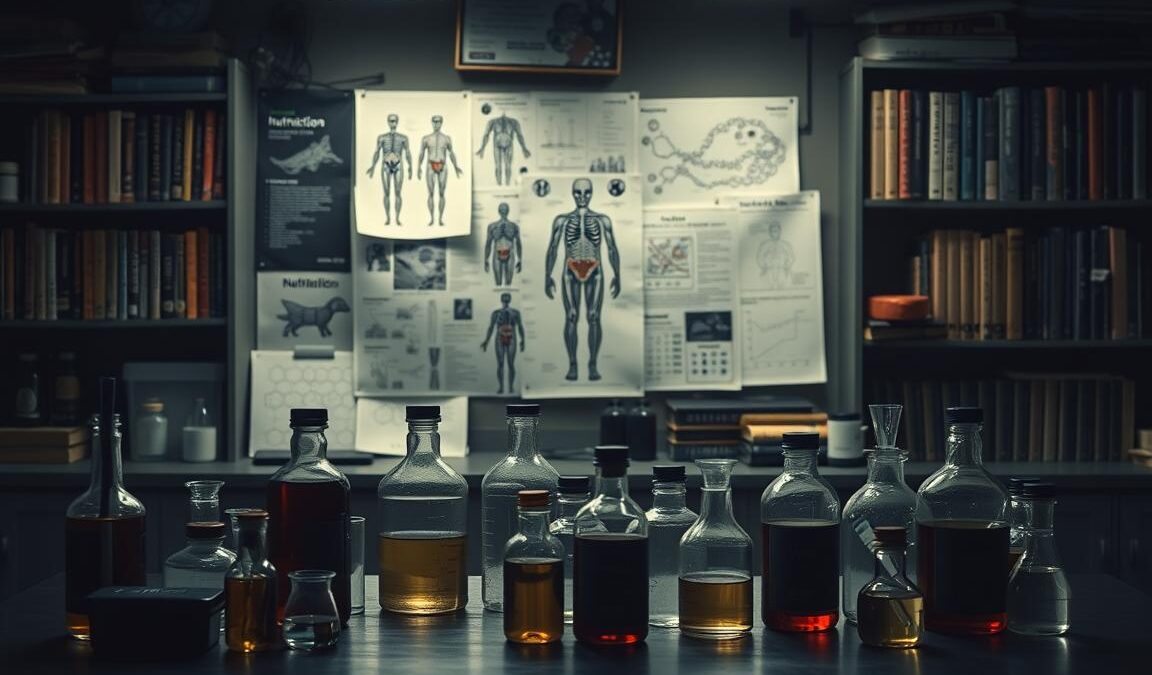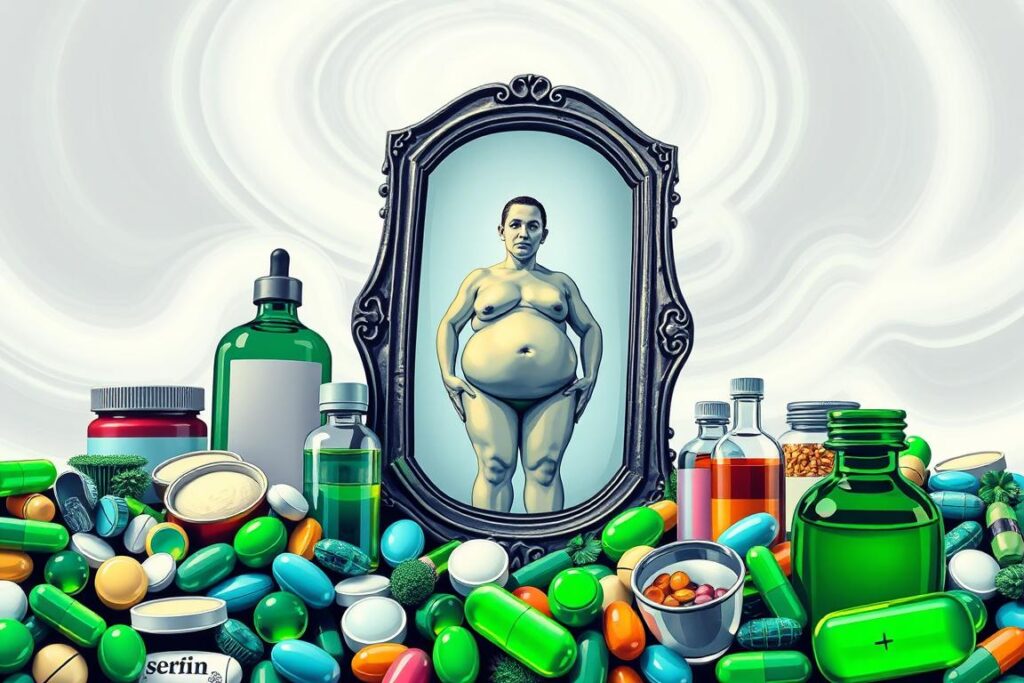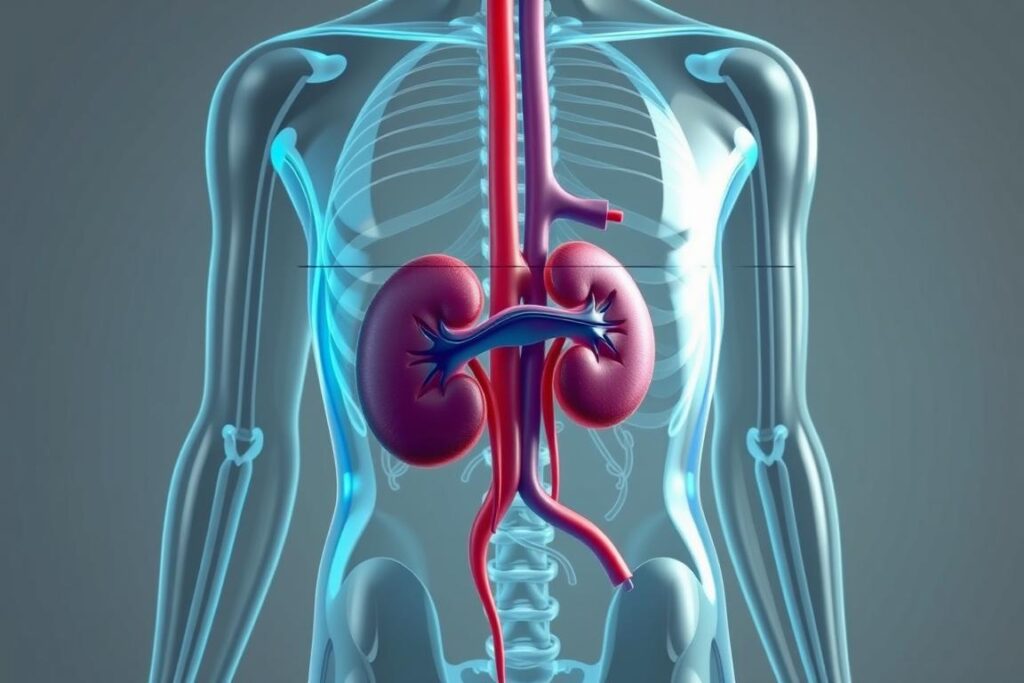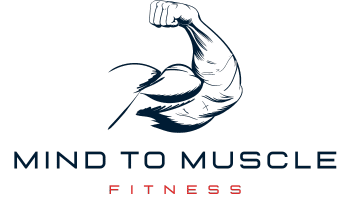
Detox Diets and Weight Loss: Separating Fact From Fiction
detox diets for weight loss myths hit hard in feeds, promising a quick reset and a lighter body overnight.
That hook feels urgent and hopeful. But when you peel back the marketing, the picture is clear: your liver, kidneys, lungs, skin, and gut already handle most cleanup quietly and well.
Experts like Frank Sacks at Harvard note limited evidence these plans remove specific toxins or deliver lasting results. Reviews have even asked makers to name the toxins targeted—and got no clear answers.
People do lose pounds fast on short programs, yet that usually reflects water and emptied gut content, not real fat loss that sticks. Look for solid research, clear mechanisms, and outcomes that last beyond a week.
In short: practical habits—sleep, consistent activity, and balanced eating—beat quick fixes. We’ll show what the evidence really supports and safe ways to support your health without falling for persuasive marketing.
Key Takeaways
- Your body already removes waste: organs work around the clock; most cleanses add little.
- Fast drops on cleanses are often water and gut changes, not lasting fat loss.
- Many products fail to define which toxins they remove or how.
- Look for clear evidence and lasting outcomes when judging effectiveness.
- Simple steps—better sleep, steady activity, hydration, and balanced diet—support long-term health.
Why detox promises feel convincing—and what the evidence actually says
A single simple action that ‘fixes’ your body is a tempting story—and a great ad line. Marketers use familiar science words, before‑and‑after photos, and short timelines that speak to busy people juggling work and family.
The psychology and marketing behind these claims
When messages sound technical, many assume regulation and proof. Sense about Science found 15 brands that couldn’t say which toxins they target. That gap shows the label often replaces measurable science.
The role of experts and research
Leading voices push back. Edzard Ernst says nonmedical detox is a hijacked term. Frank Sacks notes that your liver and kidneys already clear waste, and lasting benefits come from steady eating and habits—not short cleanses.
- Most plans (fasting, juice, raw) cut calories, so people feel lighter—because of water and gut changes, not targeted toxin removal.
- Real effectiveness requires measurable changes in the body and controlled studies; most marketing relies on testimonials instead.
| Plan type | Claimed benefit | Evidence summary |
|---|---|---|
| Juice or liquid-only | Purify body, reset metabolism | Limited; short-term weight changes are water/glycogen loss, not sustained fat reduction |
| Fasting blocks | Flush toxins, boost clarity | Some metabolic effects exist, but no proof they remove specific toxins; sustainability is low |
| Supplement-heavy plans | Support liver, remove buildup | Manufacturers rarely identify target toxins; independent studies are lacking |
Takeaway: Ask what a product measures, which toxins it targets, and what studies back its effectiveness. If answers are vague, skip it and choose proven habits—hydration, sleep, balanced eating—that actually support how your body works.
What “toxins” really are—and how your body handles them
The word toxin gets tossed around like a catch-all, but it has specific meanings. In health marketing, it often stands for pollutants, synthetic chemicals, heavy metals, or other unnamed substances.
Most products never say which substance they target. That leaves you guessing and sellers safe from scrutiny.
How your built-in system works
Your liver transforms many compounds so the body can remove them. The kidneys filter blood and send wastes out in urine. The lungs expel gases, and the skin and gut also help eliminate byproducts.
| Organ | Primary role | Typical targets |
|---|---|---|
| Liver | Metabolizes substances into excretable forms | Drugs, alcohol, some pollutants |
| Kidneys | Filter blood and balance electrolytes | Water-soluble byproducts |
| Lungs & Skin | Remove gases and sweat out small compounds | Volatile substances, sweat-borne wastes |
| Digestive tract | Excretes solid waste and unabsorbed compounds | Dietary residues, some chemicals |
When to seek medical care
If tests show high levels of heavy metals or a real poisoning, that needs clinical treatment. Supervised medical detoxification is for substance dependence or toxic exposures—not an over-the-counter tea or powder.
- Ask for specifics: which toxins, by how much, and what lab results change.
- Be skeptical of supplements that promise broad cleansing without measured outcomes.
Detox diets for weight loss myths: the biggest claims, debunked
Brands sell quick fixes with bold promises, but those claims rarely match the science. Below we break down the most common claims and what actually happens in your body.

Myth: Juice cleanses and fasting “flush” toxins and melt fat
Juice-only plans cut calories sharply. That drops water and glycogen first, not body fat. When you eat normally again, the pounds usually return.
Myth: Tea blends, supplements, or colon cleanses remove “built‑up” substances
Products often avoid naming specific toxins or showing lab changes. Some colon products can injure the gut, and certain tablets simply form rubbery stools to mimic a purge.
Myth: Three-day plans reboot metabolism for lasting change
Short extreme restriction does not reset long-term metabolism. Your body adapts, making future hunger and regain more likely.
Myth: Raw-only or liquid-only rules give a healing “reset”
These approaches can miss protein, iron, and electrolytes. They might leave you low on energy and make daily life harder—not healthier.
Quick takeaways:
- Look for named targets, measured biomarkers, and sustained results.
- Prefer steady habits over short, extreme plans.
- Talk to a clinician before trying invasive cleanses or unregulated supplements.
| Claim | Typical Evidence | Risk |
|---|---|---|
| Juice/fasting melt fat | Short-term weight drop; no fat-specific proof | Muscle loss, rebound gain |
| Tea/supplement flush toxins | No named targets; few trials | Contamination, illegal ingredients |
| Colon cleanses remove plaque | No clinical support | Perforation, infection |
What actually changes on a detox: water, glycogen, and calorie cuts—not body fat
When the scale falls in days, think water and emptied gut, not melted body fat. You often lose fluid and stored carbohydrates first. That makes you feel lighter fast.
Rapid “loss” explained: less water, less gut content, not true fat reduction
The first pounds are usually water and glycogen (carb) stores leaving the body. Glycogen binds water, so when it drops, water follows.
Cutting calories sharply and avoiding processed foods also reduces gut volume. That emptier gut makes clothing feel looser—again, not fat gone.
Why weight often rebounds after restrictive plans
Very low intake leaves your cells short on fuel. You can feel drained, suffer headaches, and get dizzy. Blood sugar dips make workouts and focus harder.
Because most early change is fluid, normal eating restores those pounds quickly. Rebound can hurt your energy and motivation.
- Fast drops = water + glycogen + less gut content, not fat.
- Sustained body composition change needs steady calorie deficit, adequate protein, and nutrients.
- Your natural detoxification systems work best with fluids, sleep, and balanced food—not extremes.
| What changes | Why it happens | Effect you notice |
|---|---|---|
| Water | Glycogen loss and lower sodium intake | Quick scale drop, softer look |
| Glycogen (carb stores) | Reduced carbs/calories | Less energy, tired cells |
| Gut content | Fewer processed foods and fiber shifts | Smaller stomach, looser clothes |
Risks and red flags: when detox diets and products backfire
What looks like a simple fix can actually cut essential nutrients and sap your energy. Be honest with yourself: if a plan strips calories or food groups, it likely trims key nutrients you need to function.
Nutrient gaps and medical concerns
Restrictive plans often lack adequate protein, iron, and B vitamins. That harms muscle repair, blood health, and daily energy.
Electrolytes can fall too, causing dizziness and low energy. If you have diabetes, kidney issues, or other chronic conditions, fasting-style approaches may destabilize blood sugar and strain organs. Talk to a doctor before trying anything extreme.
Common side effects to watch
- Headaches, nausea, and lightheadedness — signs you’re underfueling, not “cleansing.”
- GI distress and irregular stool patterns — sometimes driven by aggressive products or fiber shifts.
- Prolonged low energy that harms work, family time, and training.
Unsafe products and procedures
Some supplements have contained illegal or harmful ingredients. Non‑pasteurized juices can carry pathogens risky to pregnant or nursing people, older adults, and immunocompromised people.
Colon cleanses can injure the gut; certain pills polymerize stool to mimic a purge. If a product promises dramatic results in days and won’t name measurable outcomes, that’s a red flag.
| Risk | What to watch for | Safer alternative |
|---|---|---|
| Nutrient gaps | Low protein, iron, vitamins minerals | Eat balanced meals with lean protein and whole foods |
| Tainted products | Vague labels, no testing info | Choose third‑party tested supplements or skip them |
| Procedural harm | Colon harm, infection risk from raw juices | Consult a doctor; favor food-based changes |
Quick safety steps: prioritize protein and fluids, avoid untested pills, and seek medical advice if you have health conditions. For sustainable energy and results, steady habits beat shortcuts every time. If you’re curious about how nutrition and energy interact during body-change phases, read this tip on staying energized while bulking: always tired when bulking.
Evidence-based ways to support your body’s natural detoxification
Small habits move the needle more than extreme plans that promise overnight fixes. Focus on steady steps you can keep up. They help your organs work well without drama.

Limit alcohol. Your liver processes alcohol in stages and can be strained by excess. Swap a drink for a nonalcoholic choice a few nights weekly to reduce load.
Prioritize sleep (7+ hours). Good sleep helps the brain clear metabolic byproducts and stabilizes appetite and energy.
Drink plain water regularly. Water helps move urea and other substances out through urine, breath, and sweat. Aim to sip, not gulp, through the day.
- Cut added sugar and ultra-processed foods: Easier on the liver and kidneys, better metabolic markers.
- Choose antioxidant-rich foods: Fruits, vegetables, beans, and nuts beat high-dose pills.
- Move most days: Moderate exercise (150 minutes/week) supports circulation and organ health.
| Action | How it helps | Quick win |
|---|---|---|
| Limit alcohol | Reduces liver strain | Two alcohol-free nights/week |
| Sleep | Clears brain byproducts | Set a 7-hour sleep window |
| Hydration & foods | Supports kidneys and metabolic health | Add one extra glass of water and a veg serving |
| Daily movement | Boosts circulation and energy | Walk 20 minutes after dinner |
Smarter nutrition swaps that beat any “cleanse”
Small swaps on your plate often beat dramatic plans every time. Focus on whole, simple foods that give steady energy and real nutrients.
From restrictive to balanced: practical building blocks
Build plates around a palm of lean protein, a fist of whole grains or starchy veg, two fists of colorful fruits and vegetables, and a thumb of healthy fat.
Simple daily plate upgrades
- Swap juice-only mornings for a fiber-rich smoothie or Greek yogurt with berries—keeps blood sugar steady.
- Trade bottled “teas” for plain or sparkling water with citrus to hydrate without additives.
- Replace soup-only cleanses with a bean-and-veg chili for lasting fullness and micronutrients.
- Pick steel-cut oats with nuts and fruit over a liquid breakfast to support energy and satiety.
| Swap | Benefit | Quick win |
|---|---|---|
| Juice → yogurt + fruit | Protein + fiber, steadier appetite | Take 5 extra minutes in the morning |
| Detox tea → water + citrus | Better hydration, no gimmicks | Carry a bottle to sip all day |
| Liquid meals → bean chili | Protein, fiber, micronutrients | Make a batch for the week |
Tip: If you want to lose weight, aim for portion balance and regular mealtimes. Pair these swaps with light exercise; food plus movement changes your body far more than short-term rules. Consistency wins.
Who should avoid detox diets—and when to talk to your doctor
Some plans pose real risks for specific groups—know if you fall into one. If you live with chronic conditions, quick changes can harm your body rather than help it. Talk to a clinician before starting anything dramatic.
High-risk people and clear reasons to pause
If you have diabetes or take glucose-lowering meds, restrictive routines can drop blood sugar dangerously. Speak with your doctor before changing intake.
People with kidney problems should avoid heavy spinach or beet blends loaded with oxalates—they can strain kidneys instead of helping them.
A history of eating disorders makes rigid rules risky. Plans that reward restriction can trigger relapse. Ask a clinician or therapist before trying them.
- Pregnant or nursing, older adults, and immunocompromised people should skip non‑pasteurized juices due to infection risk.
- If you take medications, check with your clinician about herb or supplement interactions.
- Seek urgent care for dizziness, persistent GI distress, prolonged fatigue, or rapid unintended weight change.
| Condition | Why risk rises | Safer alternative |
|---|---|---|
| Diabetes | Unstable blood sugar with low intake | Planned calorie change under doctor guidance |
| Kidney issues | High-oxalate juices stress kidneys | Hydration and balanced foods tailored to kidney needs |
| Eating disorder history | Restriction can trigger relapse | Work with a therapist and focus on steady nutrition |
Your health history matters more than trends. A quick check-in with a healthcare professional can prevent setbacks and point you to safer steps: balanced foods, sleep, hydration, and steady activity that support your liver, kidneys, and overall health.
Conclusion
Your organs already clear many substances every day—give them practical support. The liver, kidneys, lungs, skin, and gut work as a team to remove toxins and keep your body running.
Fast programs can show quick weight changes, but most of that is water and gut content, not lasting fat loss. Research and controlled studies don’t back most products that claim broad substance removal.
Do this instead: drink plain water, favor whole foods, limit alcohol, move regularly, protect sleep, and keep protein and fiber high so energy and cells stay stable.
If you’re thinking about supplements or an extreme plan, ask for data and check with a clinician. Simple, repeatable habits beat gimmicks and give real benefits over time.



